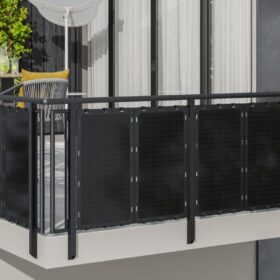Back in the 1800 and 1900s, electric companies pushed for electrification of certain hardware to increase their market size multiple times – one of which was lighting to replace candles, and the second was hot water tanks. Since approximately 2007, electricity usage in the United States is flat – with our 2018 record demand meaning “growth” has been approximately 0.05% per year (that’s 5/100ths of a percent) since then. Now, the utilities seek to take your transportation revenue from the oil majors.
Dominion Electric of Virginia has announced a request for proposals (RFP) for bus manufacturers to bid on 50 electric school buses to be deployed in 2020, with a second round of 1005 buses by 2025. The company’s longer term aspiration allow for all of the state’s 13,000 buses to go electric as they’re replaced. Phase one is estimated to cost $13.5 million with schools in Northern Virginia, Central Virginia and Hampton Roads being able to apply for the program in the next couple of weeks.
An online webcast for interested schools is scheduled for September 4 or 5th.
The utility will pay for the extra costs above a diesel bus – approximately $250,000 per unit above the $60-80k/price for a fossil powered model., as well as the charging infrastructure. The utility press release suggested that the annual operations and maintenance costs for an electric school bus are 60% lesser – approximately $700/bus/month.
Dominion noted they planned to use the school buses as electric grid assets via a vehicle to grid (V2G) connected, suggesting that 1,005 school buses would be enough energy to power greater than 10,000 homes.
Concurrently, Warren Buffett’s MidAmerican Energy, which services electricity in Iowa, has announced plans to deploy high speed Level 3 electric car charges in 15 locations in Altoona, Avoca, Carroll, Clarinda, Davenport, Dexter, Early, Emmetsburg, Iowa City, Fort Dodge, Little Sioux, Oskaloosa, Sheldon, Sioux City and Waterloo. The utility noted that once the site hosts are chosen, construction will begin by the end of the year. Hosts will set their own usage fees, consistent with state laws and regulations.
The utility is placing the stations across Iowa so as to place them roughly within 50 miles of one another. Already, the company provides $500 rebates to residential customers who buy or lease a new electric vehicle, as well $1,500 rebates to businesses that purchase “Level 2” charging stations.
Per the U.S. Department of Education’s National Center for Education Statistics: greater than 25 million students are transported per year in school buses, at a cost of $25 billion ($952/student/year) in approximately 500,000 school buses. Recently, utility Southern California Edison announced a plan to put 10 school buses on the power grid, and just four days ago manufacturer Cummins (the diesel engine company) put out a press release that Blue Bird has ordered greater than 100 electric school buses with the company’s electric drive trains. The press release noted the buses are capable of up to 120 miles of range and can be recharged in approximately eight hours using a standard SAE J1772 Level 2 charger.
It has been estimated that if we were to strategically deploy 5.4 TWh of energy storage (12 hours of nationwide demand) across the USA, we could get to 80% wind+solar without transmission upgrades. 500,000 school buses, at an estimated 100 to 200 kWh each, would meet approximately 1-2% of that value. The 200,000,000 US vehicle fleet with 50 kWh each, would have about double that 5.4 TWh volume, whereas our single family home stock of greater than 100 million units with a single larger Sonnen or two Powerwalls, would meet the value.
And just in case you were wondering how this vehicle electrification might affect your portfolio –
https://twitter.com/CrowleyKev/status/1167600422795788288
This content is protected by copyright and may not be reused. If you want to cooperate with us and would like to reuse some of our content, please contact: editors@pv-magazine.com.








*Cummins, not Cummings, diesel
Thanks for the analysis and insight of what “we” can do for now and in the future.